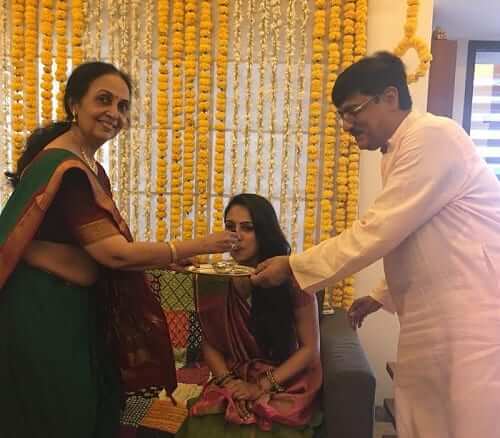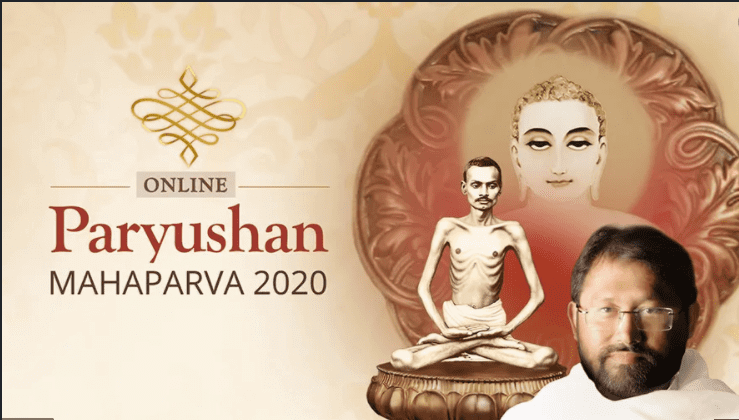
It was the last day of fasting.
Michhami Dukkadam, we said to each other, joining our hands and bowing down – I ask for forgiveness for any wrong I did to you, knowingly or otherwise.
My family and I had just concluded Samvatsari Pratikraman in India last year, the annual ritual of introspection, repentance, and renewal. It is a 3-hour long ritual, sans electricity and technology, that reminds us of the right from wrong, repent (prayaschit) for our sins and non-meritorious activities committed knowingly or inadvertently during daily life through thought, speech, or action.
At the conclusion of this intense and purging ritual, we renewed our vows of following Ahimsa (non-violence), Satya (Truth), Asteya (non-stealing), Brahmacharya (chastity) and Aparigraha (non-attachment) and put behind us the evils (kashay) of greed, wrath, conceit, and delusion.
This is an essential element of the eight-day Jain festival Paryushan, an annual observation that involves fasting, study, and introspection, abstinence, purging, atonement, and forgiveness.

I had fasted for the last 7 successive days (8-day fast is called atthai), abstaining from food, and having boiled water only until sunset.
Unlike the other festivals in India like Diwali and Navratri that are characterised by feasting and dancing, Paryushan is all about solemnity and austerity.
The successful completion of fasts though, calls for a celebration of sorts. The extended family was invited to break the fast (parna) with Jain delicacies. I wanted the celebration to be fun, hence I had taken an abhigrah (a vow) that only when someone offered me a certain item of food, would I break my fast (it also helps build control, determination, and conquer the fear or insecurity for living.) It took 20 people almost 30 minutes to finally guess the food item I wanted to break my fast with, and it was immediately made for me. This was inspired by a story involving Lord Mahavir and Chandanbala, known to every Jain.

To an outsider, this may look very difficult to achieve, but Jains know that their religion is based on science more than ideologies. The people who observe fasts and other austerities earn immense respect, although it is widely prevalent in the community.
Our philosophy teaches us restraint in actions and words and that helps strengthen our will power. Thousand-year-old Jain food practices are also now being repackaged as intermittent fasting and veganism. Jainism is a way of life, which is seen as purification of body, mind and soul.
Here in Australia, following the Jain way of life is, of course very difficult, if not impossible. But these 8 days are dedicated to fasting, religious study, self-introspection, and atonement. The Jain community in Sydney is quite active and the help and support extended by them more than makes up for the lack of family support.

During these COVID times, however, when some religious authorities are advising against fasting so as to not put our immunity system at risk, the time is to focus on personal reflections and going within. Why reduce this Jain festival to a kitchen religion? Jainism has always emphasized on adaptivity and flexibility and doing the right thing, keeping the spiritual
growth perspective at the forefront.
My own Paryushan this year is about exploring translated Jain scriptures, studying Jain concepts, and learning more about the religion and its take on various things. Also, experimenting with Jain recipes would help create some excitement. For those with a curious bend of mind, it’s all food for thought, while the more spiritual ones can enjoy Digital Paryushan. Many Facebook and YouTube channels are broadcasting live sermons and rituals
from Jain temples. Zoom is abuzz with related competition like the singing of hymns and meditation classes. There are helplines and groups facilitating online conversations to help stay
connected and find calm in this chaos of the corona pandemic.
To look at the brighter side of things, the coronavirus pandemic has given us more time: this Paryushan might usher in deeper and lasting inner change, even as the world outside changes drastically.
There are four Jain centres in Australia. The Jain population in Australia was counted in the 2016 census to be 4,047, of whom 38% lived in Greater Sydney, 31% in Greater Melbourne, and 15% in Greater Perth.
Read Also: Paryushan special Jain recipes: Why should vegetarians have all the fun?



